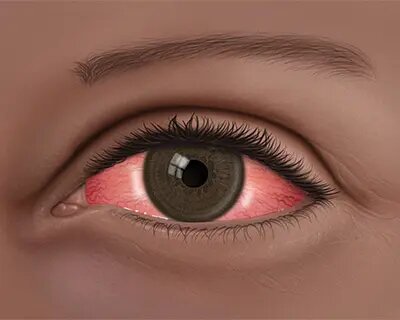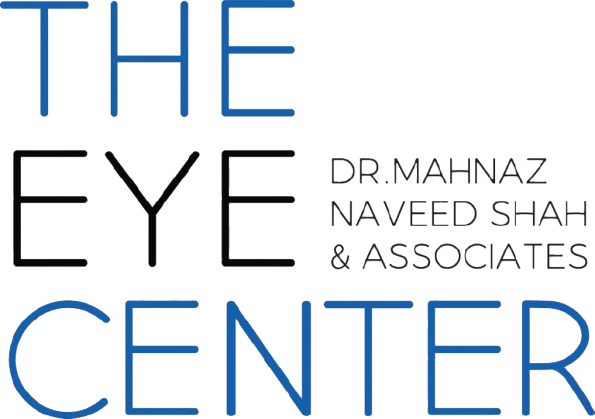Ocular rosacea is inflammation that causes redness, burning and itching of the eyes. It often develops in people who have rosacea, a chronic skin condition that affects the face. Sometimes the first indication that you may later acquire the facial type of rosacea is ocular (eye) rosacea. Most adults with ocular rosacea are between the ages of 30 and 50. People who tend to blush and flush easily seem to develop it. Ocular rosacea cannot be cured, however treatment options and regular eye exams can help manage the signs and symptoms.
Signs and symptoms of ocular rosacea can precede the skin symptoms of rosacea, develop at the same time, develop later or occur on their own. Signs and symptoms of ocular rosacea may include red, swollen, itchy, and watery eyes, eye dryness the sensation of having something foreign in one’s eye or eyes, blurred vision, sensitivity to light (photophobia), When you look in a mirror, dilated tiny blood vessels on the white area of the eye, having red or swollen eyelids and recurrent infections of the eye or eyelids, such as chalazia, styes, or pink eye (conjunctivitis), or blepharitis.
It is not always the case that the severity of ocular rosacea symptoms corresponds to that of skin symptoms.
Like skin rosacea, the precise cause of ocular rosacea is unknown. One or more factors, such as heredity, environmental conditions, bacterial involvement, or a combination of these, may be to blame. obstructed eyelid glands and lashes mites
The same bacteria that causes gastrointestinal infections, Helicobacter pylori, has also been linked in certain studies to rosacea of the skin.
Ocular rosacea can be made worse by a number of the same causes that make skin rosacea worse. A few of these are alcohol, sunlight, wind, or temperature extremes, as well as certain emotions like stress, anger, or embarrassment. Other contributors include strenuous exercise and hot baths or saunas.
Although ocular rosacea can occur independently of skin rosacea, those with skin rosacea are more likely to experience it. Ocular rosacea affects both men and women equally, however skin rosacea affects more women than males. Fair-skinned people with Northern European and Celtic ancestry tend to have it more frequently.
Ocular rosacea can harm your cornea, especially if you have dry eyes from tears evaporating too quickly. Visual problems may result from corneal complications. Eyelid inflammation (blepharitis) can result in subsequent corneal discomfort from misdirected eyelashes or other issues. In the end, corneal issues may result in visual loss.
The diagnosis of ocular rosacea does not involve any particular techniques or tests. Instead, your physician will most likely determine your diagnosis based on your signs and symptoms, your health background, and a review of
The majority of the time, eye care at home and medication can control ocular rosacea. But the problem often persists and cannot be cured by these measures. The temporary use of oral antibiotics such tetracycline, doxycycline, erythromycin, and minocycline may be recommended by your doctor. You might need to take an antibiotic for a longer period of time if your symptoms is severe.
At The Eye Center- Dr. Mahnaz Naveed Shah & Associates our team of eight ophthalmology subspecialists/ eye specialists, eye surgeons who are considered amongst the very best eye specialists in Karachi and in Pakistan, have the diagnostic and treatment capabilities to treat from the simplest to the most complex patients. We work hard to provide our patients with the best possible medical and surgical eye care, in a state of the art purpose built eye care facility. We offer the entire array of medical, laser and surgical treatments to help provide patients the best possible care in the most efficient, safe and ethical manner.
If you need an appointment, please contact us at 03041119544 during our working hours or leave us a WhatsApp message at +923028291799 and someone will connect with you. Walk-in appointments are also available for emergencies. We can also be reached through our web portal on www.surgicaleyecenter.org

